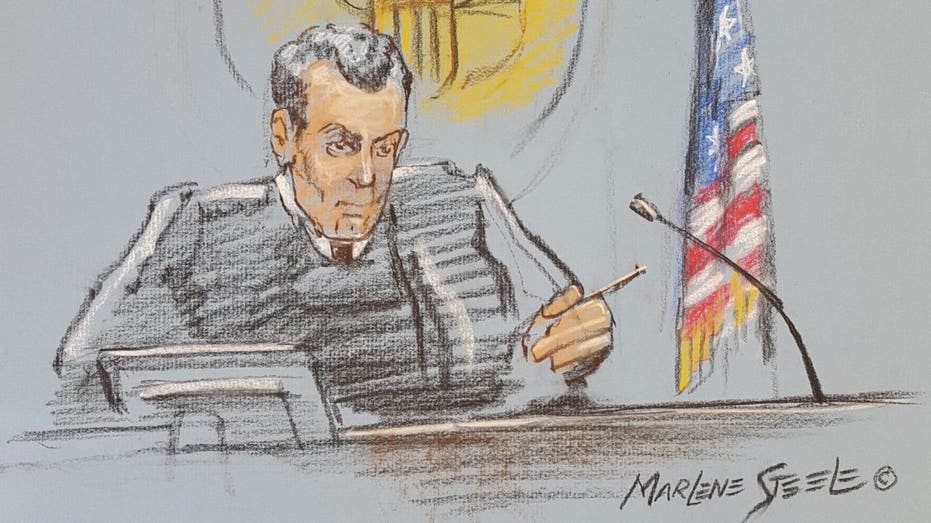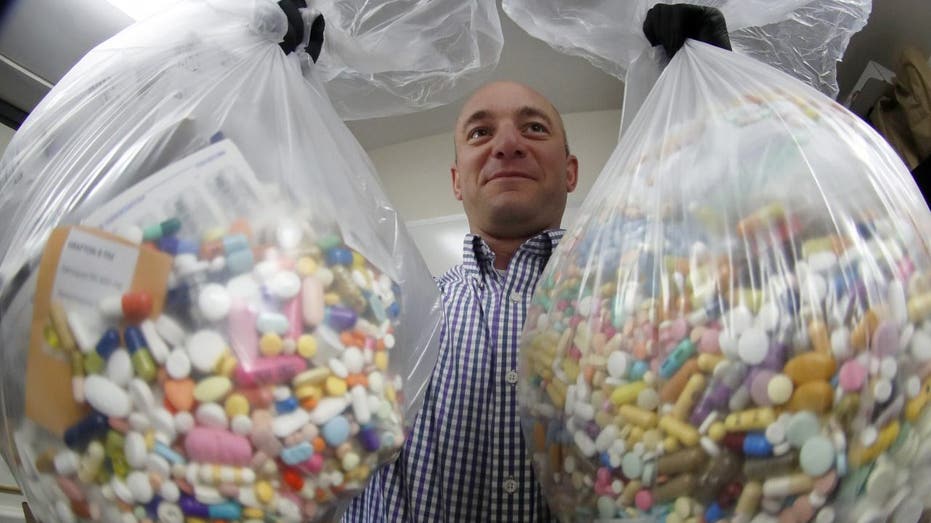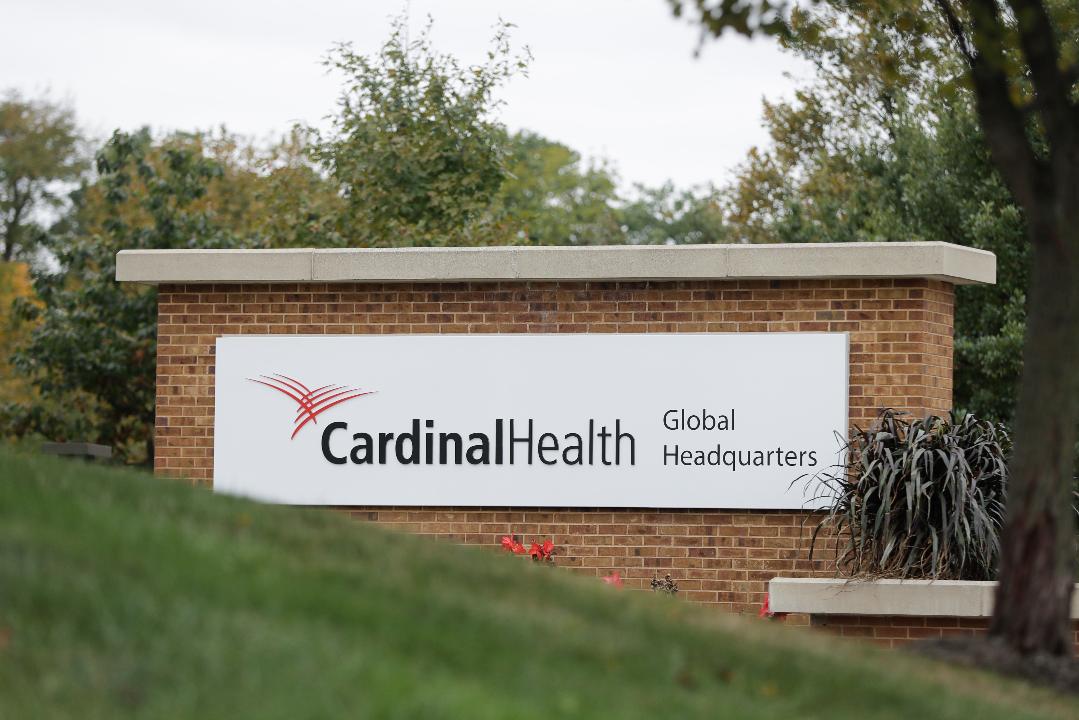Drug companies reach $260M settlement in opioid litigation
Four drug companies reached a $260 million settlement to avoid going to trial in a case brought by two Ohio counties that sought to blame them for stoking the nationwide opioid crisis.
The Wall Street Journal first reported the settlement.
McKesson Corp., Cardinal Health Inc., AmerisourceBergen Corp. and Teva Pharmaceuticals Ltd. agreed to a deal around midnight Sunday or 1 a.m. Monday, U.S. District Court Judge Dan Polster said during Monday court proceedings. Distributor Henry Schein struck a separate deal with Summit County, Ohio. The new plan is for Walgreens and other pharmacies to go to trial within six months.
"The parties were always free to reach a resolution, and I'm glad they did," Polster said.

U.S. District Court Judge Dan Polster presides over court proceedings in an opioid trial in Cleveland, Ohio, Monday, Oct. 21, 2019. (Sketch: Marlene Steele)
The companies admitted no wrongdoing as part of the settlement. In the last 20 years, an estimated 400,000 deaths are blamed on opioids, both legal and illegal.
Walgreens distanced itself from other defendants in the first federal opioid trial that was slated to start Monday.
"Walgreens is completely unlike the wholesalers involved in the national opioid litigation," the company said in a statement Monday. "Before 2014, Walgreens delivered opioid medications – among many other types of medications – only to our own pharmacies, staffed by our own pharmacy professionals."
"We never sold opioid medications to pain clinics, internet pharmacies or the 'pill mills' that fueled the national opioid crisis," Walgreens continued.

FILE - In this Sept. 11, 2019, file photo, narcotics detective Ben Hill, with the Barberton Police Department, shows two bags of medications that are are stored in their headquarters and slated for destruction in Barberton, Ohio. (AP Photo/Keith Srak
The stakes of the case were expected to be significant and far-reaching, as a bellwether for how future cases are handled. There have been 2,600 lawsuits filed against various pharmaceutical-related companies that make, sell or distribute the drugs, in an effort to recover some of the cost to opioid-ravaged communities.
In the case at hand, two Ohio counties -- Cuyahoga and Summit -- were suing companies that either make, sell or distribute opioids. The counties were looking for money to help them fight and fix the epidemic, while families who lost loved ones to overdoses are seeking justice. The companies, meanwhile, say they followed the law and aren't to blame for the crisis.
"This is not your typical tort product liability case. It’s really about an epidemic," Carl Tobias, a professor in the law school at the University of Richmond, said. "There are so many different motivations among so many different players, it’s virtually impossible to know what would be good."
"The distributors' role is to help ensure that medicines prescribed by licensed doctors are delivered to licensed pharmacies, so they are available for patients who need them, when they need them, where they need them," the three large distributors said in a joint statement issued after settlement negotiations hit an impasse on Friday. "We have to balance our mission to deliver medicines to pharmacies and hospitals when and where they need them against our important efforts to prevent and detect illegal diversion of those drugs."
CLICK HERE TO READ MORE ON FOX BUSINESS
The Associated Press and FOX Business' Jason Racki contributed to this report.




















